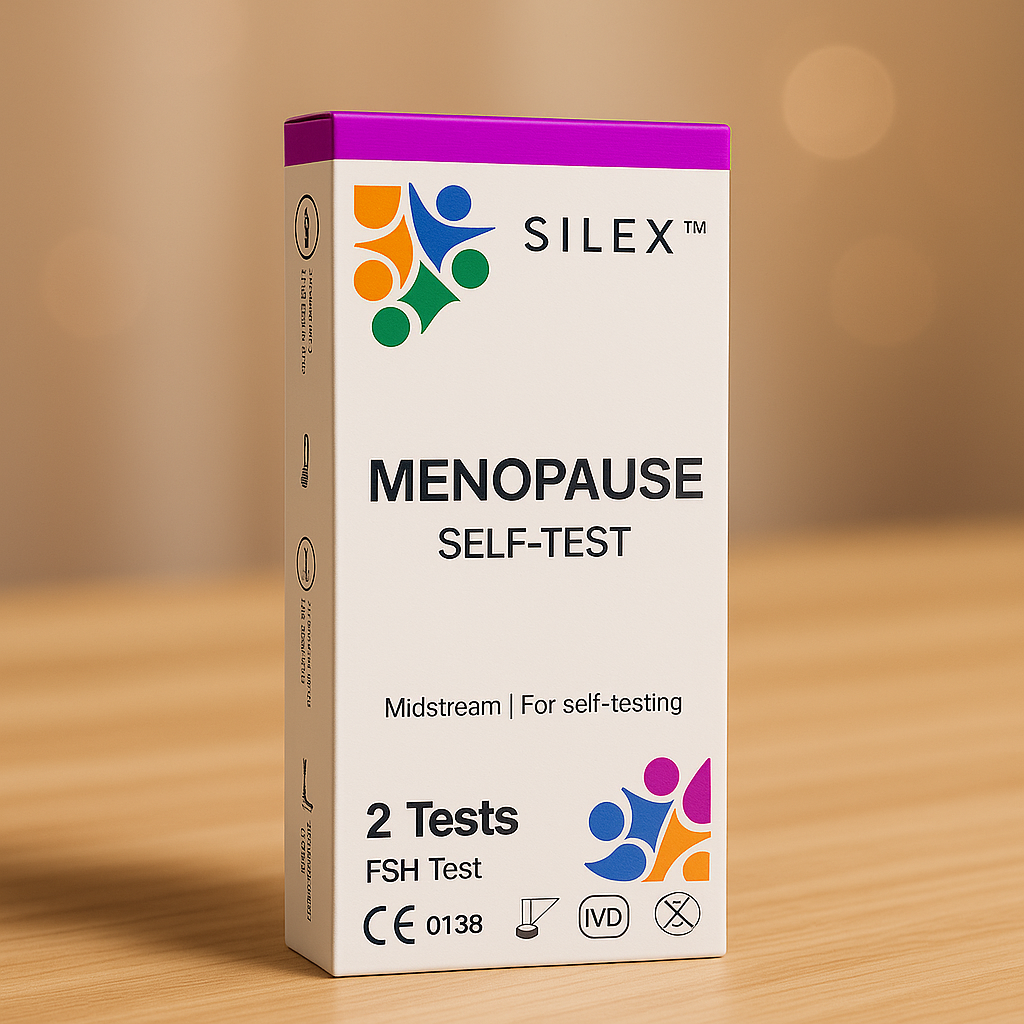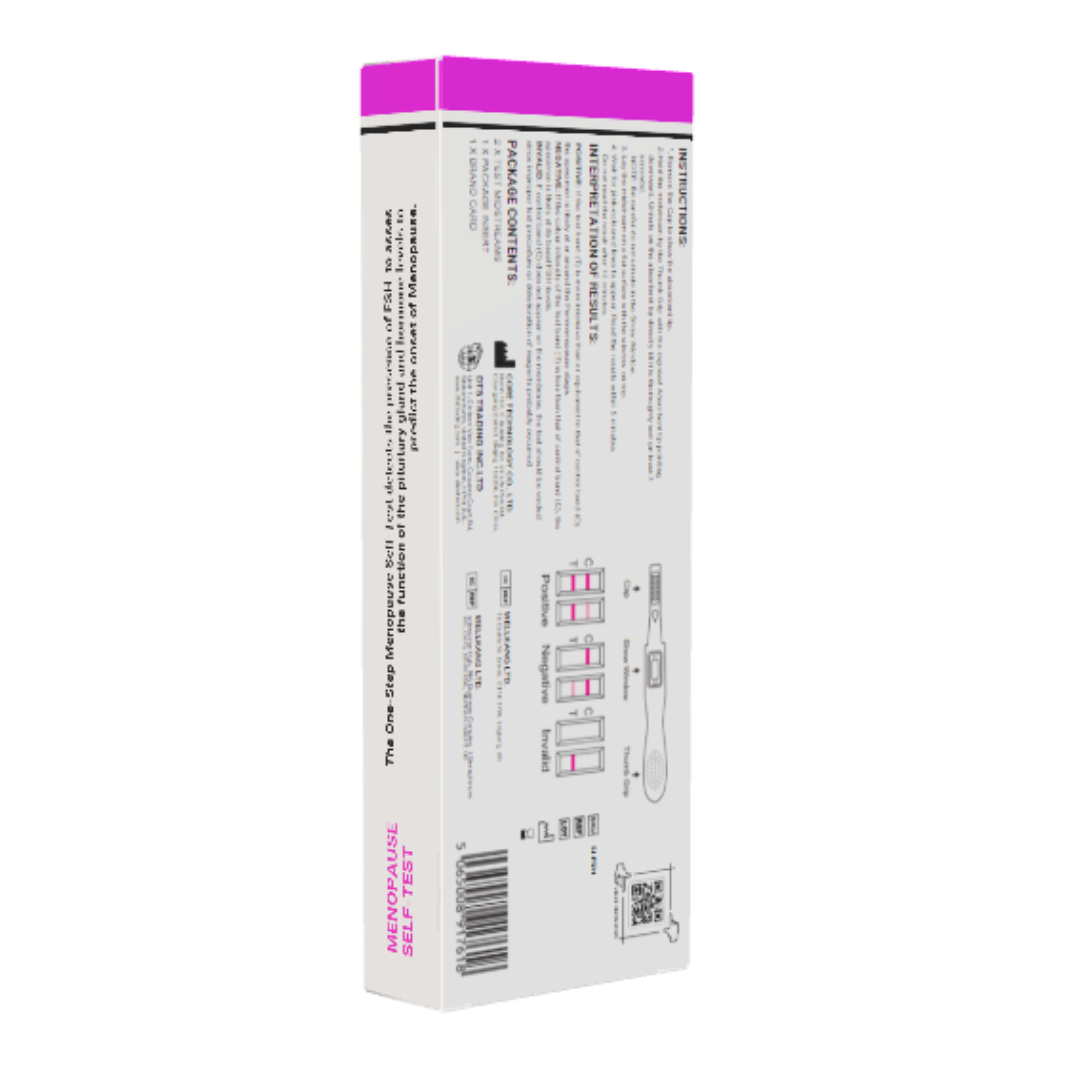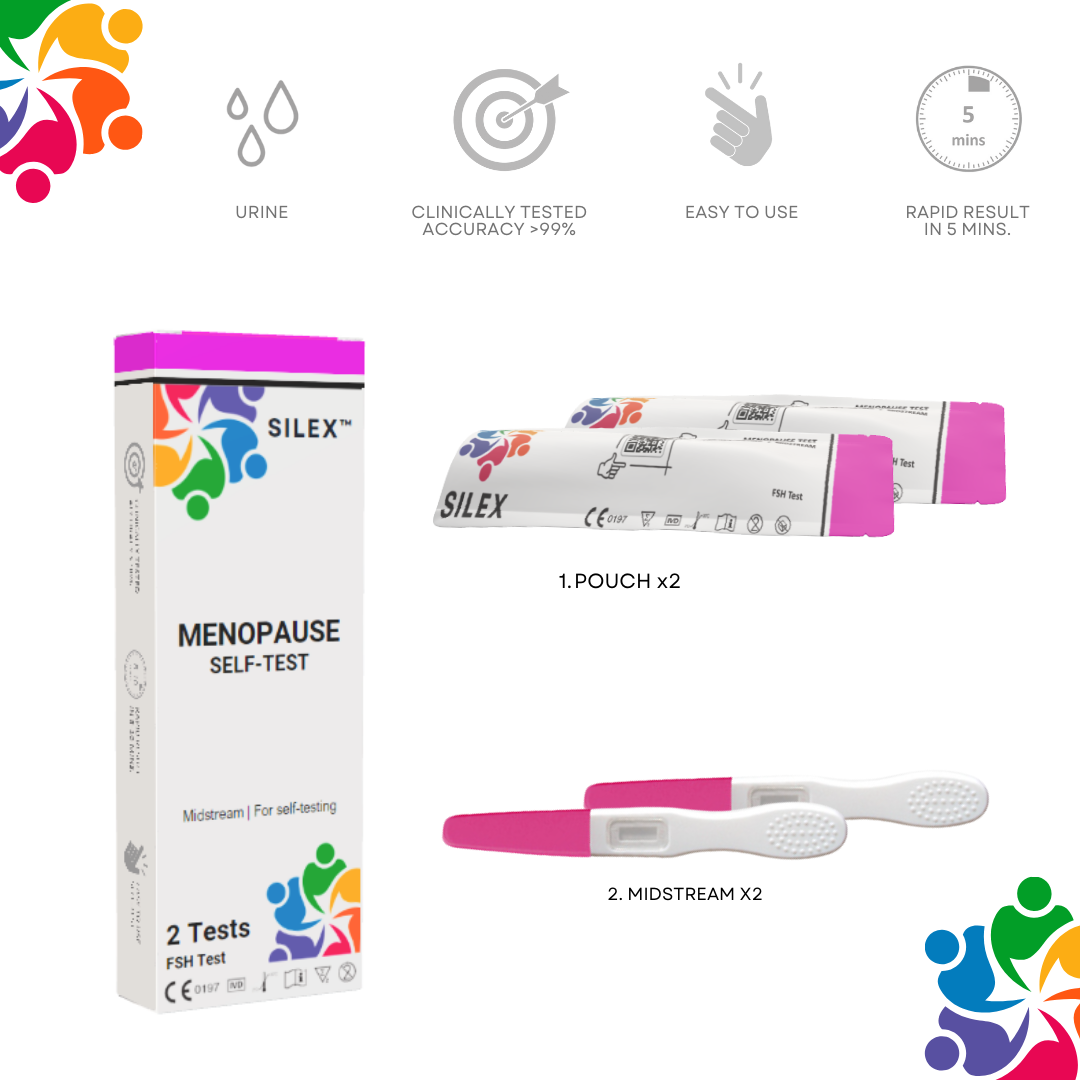


How to Use
- Remove the Cap to show the absorbent tip.
- Hold the midstream by the Thumb Grip with the exposed Absorbent tip pointing downward. Urinate on the absorbent tip directly till it is thoroughly wet (at least 3 seconds).
Note: Be careful do not urinate in the Show Window. - Lay the midstream on a flat surface with the window on top.
- Wait for pink-coloured lines to appear. Read the results within 5 minutes.
Do not read the result after 10 minutes.
Menopause Symptoms
Changes to your periods – they may become irregular and eventually they will stop altogether.
Effect on your well-being: changes in mood are common including low mood, anxiety, mood swings and low self-esteem. There may also be problems with memory and concentration (sometimes called ‘brain fog’).
Physical symptoms:
- Changes to your periods – they may become irregular and eventually they will stop altogether.
- Effect on your well-being: changes in mood are common including low mood, anxiety, mood swings and low self-esteem. There may also be problems with memory and concentration (sometimes called ‘brain fog’).



